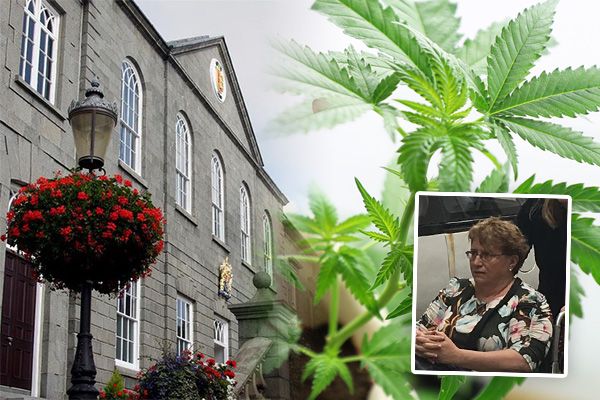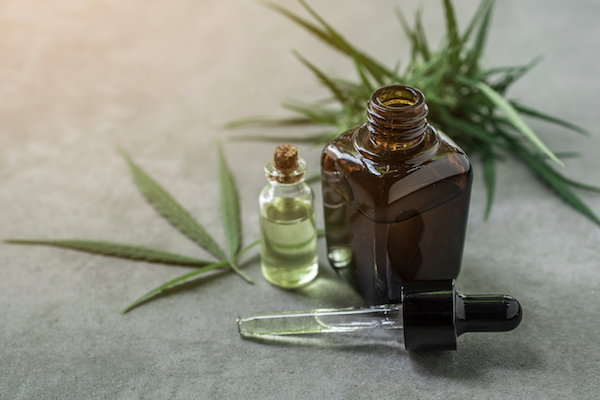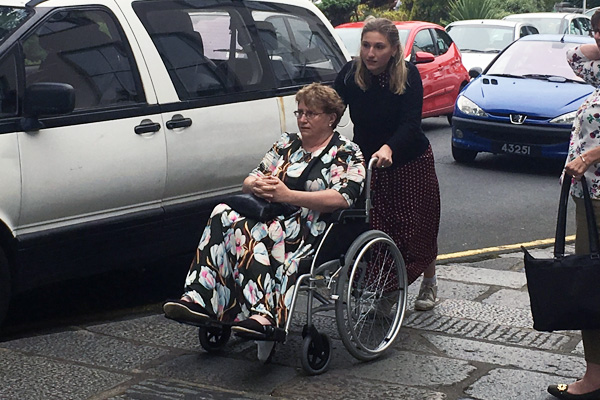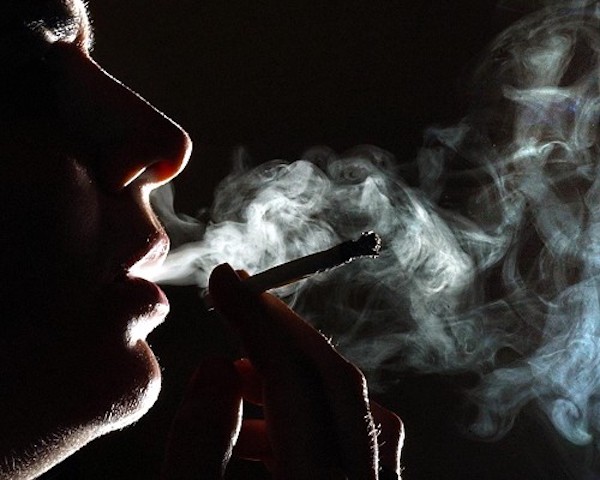

An exceptional ruling from the Royal Court, which saw a woman given only a suspended sentence for importing a class A drug, might "step up States' efforts" to reconsider Guernsey's legal framework, according to some politicians.
The sentence was given to Christine Smith, 65, last Thursday, in light of an array of mitigation offered on her behalf.

Medicinal Cannabis is already available in Guernsey in some forms, if you apply for and receive a licence.
She was importing a cannabinoid derivative in the hope it might help her to live more comfortably with primary progressive multiple sclerosis, but her lawyer told the court she was not aware of the A classification the drug had. Usually, the minimum sentence for importing a class A drug is seven years in custody, but on this occasion, people have been praising the courts for making a "humane decision".
Let me clarify. I think it was entirely right that the prosecution took place. But from what I know of the case, there were genuine extenuating circumstances that justified a suspended sentence.
— Chris Green (@deputycgreen) 18 October 2018
Deputy Chris Green, the President of the Scrutiny Management Committee and also a Guernsey advocate himself, described the approach the court took as compassionate.
"I am pleased that the Court decided to recognise the mitigation that evidently existed for the woman in question and were prepared to suspend her sentence of imprisonment," he said.
"That was a humane decision. I do not believe that this case does set any sort of precedent as each case will have to be assessed on its own facts. It was not unreasonable for the woman to be prosecuted given the laws that presently exist - but perhaps this case might step up efforts made by the States to re-consider the current legal framework with regards to drugs."

Pictured: Christine Smith received a two year suspended sentence from the Royal Court last Thursday. This means if she commits any other imprisonable offences for the next two years, she will be automatically be taken into custody.
Surely in our non-coded justice system it is precisely because of rulings such as this that moves should be made to change the law. Watch this space
— Jonathan Le Tocq (@letocq) 18 October 2018
Deputy Jonathan Le Tocq, Guernsey's Foreign Minister, also said he expected to see this case used in arguments to deregulate the drug going forwards.
"There is work currently being undertaken with regards to the licensing and regulation of medicinal cannabis in the Bailiwick. As a result of this - and rulings such as those mentioned - there is very likely to be pressure to deregulate completely or partly, especially as other Western nations do so, it is simply a matter of time in my view."
As both deputies suggest, a review of the island's legal framework is on the horizon, which could see the strict approach Guernsey Border Agency, Guernsey Police and the courts are directed to take towards cannabis being relaxed. The framework is what sets out the strategy and guidelines both parties follow, and can be changed only by the States of Guernsey. It has already been emphasised by a number of politicians that during the review, cannabis will be at the top of the agenda for discussion.
Cannabis is a class B drug in Guernsey. This particular cannabinoid derivative was class A because of its very high percentage quantity of THC - a component of cannabis. While some people are pushing for deregulation of the drug, or even total legalisation, some just want to see police treat it less seriously. Local Drug Strategy campaigner, Lucia Faith, recently called for a message to be sent to police to be less strict with cannabis finds.
Medicinally, certain types of cannabis oils are already legal in Guernsey. These oils are THC free, or have extremely low THC quantities in them. Additionally, people can already apply for medicinal cannabis licences through Health & Social Care, something the UK does not yet facilitate.

Smith was advised by the court that this would have been the correct path for her to take if she had wanted access to medicinal cannabis, although she would not have been able to use the exact drug she was attempting to import. These licences are granted by the island's Director of Health, who can then legally import the medicine.
The States are also in the middle of ongoing work to further deregulate the drug for medicinal use.
Legally, the States are also expected to soon address the island's legal framework - the framework which binds the courts to certain sets of sentencing guidelines. When this happens, it is expected the strict view the criminal justice system takes on cannabis will be reviewed, and potentially relaxed.
Most recently, this has all been being viewed in the light of Canada, one of the largest western countries, totally legalising the drug for public use.
Pictured: Christine Smith as she arrived at court last week.
Comments
Comments on this story express the views of the commentator only, not Bailiwick Publishing. We are unable to guarantee the accuracy of any of those comments.